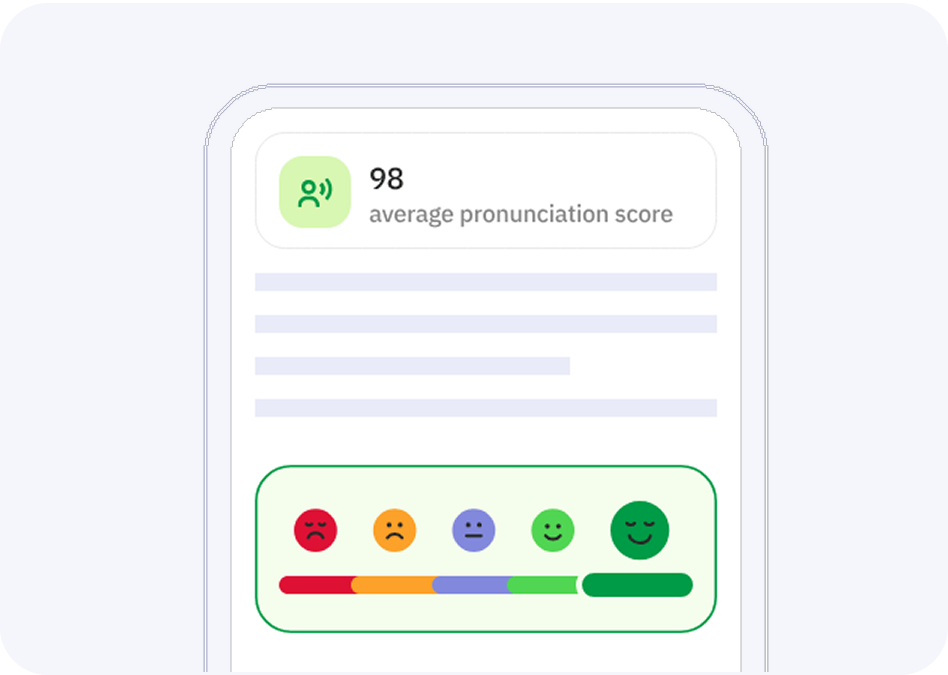The Mystery Behind Schadenfreude
Have you ever secretly smiled when someone else trips, fails a test, or faces a minor setback? If so, you've experienced an emotion that psychologists call Schadenfreude— a German term literally meaning "joy from harm." Though it feels strangely comforting, Schadenfreude can often raise complex questions about human nature and morality. Today we dive deep into this intriguing emotion, exploring its psychology, the reasons behind it, and why this phenomenon resonates deeply across cultures and personalities.

The talkpal difference

Personalized Education
Every student has a distinct approach to acquiring knowledge. Through Talkpal technology, we analyze the study habits of millions of users at the same time. This data helps us craft highly effective educational tools that are fully tailored to fit the personal preferences and goals of each individual.

Cutting-Edge Technology
Our main goal is to lead the way in providing accessible and customized study experiences for all users. We utilize the most recent breakthroughs in modern innovation and AI to ensure everyone can benefit from a smart and responsive learning environment.

Making Learning Fun
We have transformed the study process into a delightful activity. Staying motivated with online courses can often be difficult, so we designed Talkpal to be incredibly captivating. Our platform is so entertaining that many users prefer developing their abilities here rather than spending time on video games.
LANGUAGE LEARNING EXCELLENCE
The most efficient way to learn a language
Try Talkpal for freeUnderstanding Schadenfreude: A Psychological Perspective
At its heart, Schadenfreude is a complex mixture of superiority, envy, resentment, and even relief. Psychologists claim the sensation often emerges when someone’s misfortune corresponds with our personal insecurities or rivalries.
- Envy and Competition: When we envy someone or perceive them as a competitor, their misfortune seems to level the playing field and can elicit a subtle feeling of pleasure.
- Self-Esteem and Validation: Seeing others fail makes us temporarily feel better about ourselves.
- Justice and Fairness: Sometimes Schadenfreude appears when we feel someone has received fairness or comeuppance.
What Causes Schadenfreude: Diving Deeper
1. Biological Roots of Schadenfreude
Studies demonstrate this feeling can even appear within brain scans. Schadenfreude activates certain pleasure centers, notably those responsible for reward recognition. The brain produces dopamine, a neurotransmitter linked to satisfaction and pleasure, whenever we experience Schadenfreude.
2. Social Comparison Theory
According to Social Comparison Theory, we constantly gauge ourselves by comparing our lives with others. Witnessing setbacks or troubles experienced by others may connect to our internal social ranking system, creating comfort or satisfaction.
3. Cognitive Dissonance and Moral Alignment
Schadenfreude may also reduce cognitive dissonance—the unsettling sensation when our beliefs or self-image clash with reality. When someone else’s misfortune validates our beliefs or moral code, we subconsciously feel justified or affirmed.
Historical and Cultural Significance of Schadenfreude
Schadenfreude isn’t a modern phenomenon; humans have experienced it throughout history. Various cultures acknowledge or express Schadenfreude differently:
- Ancient Greek Philosophy: Aristotle considered Schadenfreude unethical yet normal, reflecting the human struggle with morality and compassion.
- Eastern Philosophies (Karma): Many Eastern cultures interpret Schadenfreude within the context of karma or cosmic justice.
- Comedy and Literature: Schadenfreude frequently drives comedic and narrative tension in literature and films, showing the universality of this emotion.
Consequences of Schadenfreude
Despite being common, encouraging Schadenfreude can have negative consequences on personal relationships and societal harmony, including:
- Developing emotional distance from others.
- Becoming insensitive toward other’s pain and distress.
- Deteriorating relationships due to lack of empathy.
How Can We Cope With Schadenfreude?
Instead of suppressing or feeling guilty about Schadenfreude, acknowledging it may be healthier. Strategies include:
- Recognizing the Feeling: Notice when Schadenfreude surfaces, and reflect on why you feel this way.
- Practicing Mindfulness: Being aware of your emotional reactions and meeting them non-judgmentally could minimize negative impacts.
- Empathizing and Practicing Compassion: Try genuinely empathizing with the person dealing with setbacks; this shifts the focus from comparison to mutual understanding.
Final Thoughts
Despite its often negative implications, Schadenfreude is inherently part of being human and remains a fascinating psychological concept. Understanding the mystery behind Schadenfreude can lead us to greater self-awareness as we strive for emotional intelligence, empathy, and compassion.
The most efficient way to learn a language
Try Talkpal for freeFrequently Asked Questions
What exactly does Schadenfreude mean?
Is Schadenfreude considered unhealthy or immoral?
Does everyone experience Schadenfreude?
How can I manage or reduce feelings of Schadenfreude?
Does Schadenfreude exist across all cultures or is it specific to Western societies?







